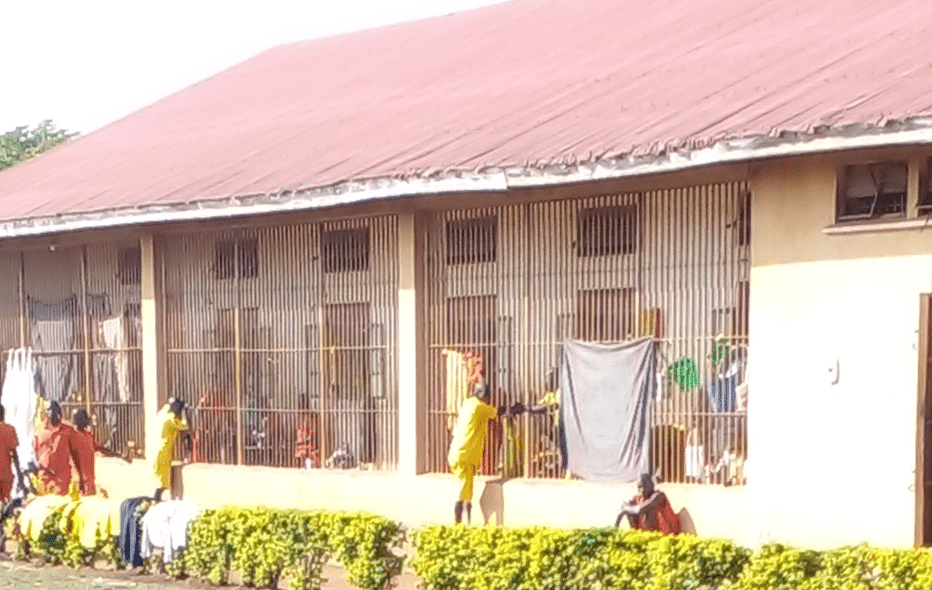
ASF just published a report that explores the level of knowledge, the attitudes and practices of key stakeholders towards pre-trial detention under the criminal justice system in Uganda. The survey was undertaken in four locations of Gulu, Arua, Lamwo and Kampala. A total of 405 community members, 96 police detainees, 54 prisoners, and 47 officials from Justice Law and Order sector (JLOS) institutions and legal aid service providers were interviewed, using both qualitative and quantitative methods. The report sheds light on the root causes of violations of procedural and constitutional rights. With this evidence base, the report provides recommendations for action and positive reforms in the area of pre-trial detention.
Pre-trial detention in Uganda
Uganda has an elaborate legal framework regulating pre-trial detention, which includes detailed provisions regarding procedural and constitutional rights. Compliance with these provisions,however, continues to be a challenge. Many persons going through the criminal justice system suffer violations of their human rights. These include arbitrary or illegal arrests, overstaying inpolice custody, the lack of access to police bond, or violations of the right to mandatory bail. The most vulnerable and indigent are those who suffer most from the lack of compliance with procedural and constitutional rights.
Key challenges
The report findings show that a key challenge which exacerbates the continued violation of rights during detention is the lack of knowledge by the public with regard to their pre-trial constitutional and procedural rights. Only half (50%) of respondents in the community were able to mention some of the rights of people arrested by police. Such rights as (1) the right to be produced in court within 48 hours after arrest, (2) the right to be released on mandatory bail, (3) the right to access a lawyer and (4) the legal provisions related to police bond are not known by a majority of the population (less than 50% of respondents had knowledge of those rights).
The prison inmates interviewed during the survey had slightly better levels of knowledge of their rights, which could be attributed to sensitization meetings held by prison wardens and NGOs.
The lack of knowledge of key procedural and constitutional safeguards, both within the community and in places of detention, is not a surprising finding. However, it re-confirms the importance of dissemination of these technical provisions in order for rights-holders to be empowered to demand respect for their rights.
Attitudes and perceptions
Regarding attitudes and perceptions, findings show a lack of trust in some criminal justice institutions, in particular in the Uganda Police Force (UPF). Community respondents noted issues such as delays and inefficiency in the treatment of cases, as well as corruption.
Both police detainees and prison inmates reported low levels of trust in the police to handle cases, and mentioned experiences of being asked for bribes.
Such a high level of distrust in the police may impede access to justice and human rights, as communities who do not trust the police will be less likely to report cases or collaborate with the police, and detainees may feel less confident in advocating for the respect of their rights in their interaction with the police.
A consequence of the distrust of the police was also the finding that the majority (57%) of community members trusted local or cultural courts rather than the police to handle their cases, especially in rural areas such as Lamwo and Arua.
Practices
Finally, the study also sought to identify prevalent practices with regard to pre-trial detention and the administration of justice, in order to understand how realities may differ from the provisions of the law. Among community respondents, a particularly outstanding finding concerned the prevalence of mob justice, with about 89% of respondents acknowledging its existence in their community. At the level of police detention, a key finding identified from detainee surveys concerned the duration of detention, which averaged 5.3 days, far beyond the legal limit of 48 hours. Finally, an important issue was also raised with regard to legal aid: only 16% of police detainees and 30% of prison inmates had access to a lawyer.
Perspectives and challenges faced by duty bearers
In order to fully contextualize the above findings, the study also sought to gather the opinions of duty bearers on their role in protecting procedural and constitutional rights, and their attitudes and practices within the criminal justice system. Stakeholders from various institutions were interviewed, including the Uganda Police Force (UPF), the Judiciary, the Office of the Directorate of Public Prosecutions (ODPP), the Uganda Prisons Service (UPS), cultural and Local Council leaders, probation officers and the in-charge of a remand home.
Overall, the stakeholders interviewed demonstrated solid knowledge of their role in upholding constitutional and procedural rights and stressed the fact that the execution of their roles is interdependent within the criminal justice chain link (police, prison, judiciary, ODPP). Yet, they identified several systemic challenges which greatly impeded their ability to fulfil their duties. Beyond the expected human resource challenges and inadequate funding issues, stakeholders also discussed coordination gaps amongst JLOS institutions, or dysfunctional checks and balances within the criminal justice system.
Finally, interviews with advocates and paralegals highlighted key issues in legal aid service provision, including the lack of services in rural areas such as Lamwo, and funding gaps. Such findings highlight the pressing need for government to address access to legal aid as a matter of national policy.
Protecting procedural and constitutional rights through access to justice (2020-2023)
Avocats Sans Frontières (ASF), in partnership with the Legal Aid Service Providers Network (LASPNET), implemented a three-year project (2020-2023) entitled “Protecting procedural and constitutional rights through access to justice” in the districts of Kampala, Arua, Gulu, Hoima, Lamwo, Kitgum, Wakiso and Masindi.



